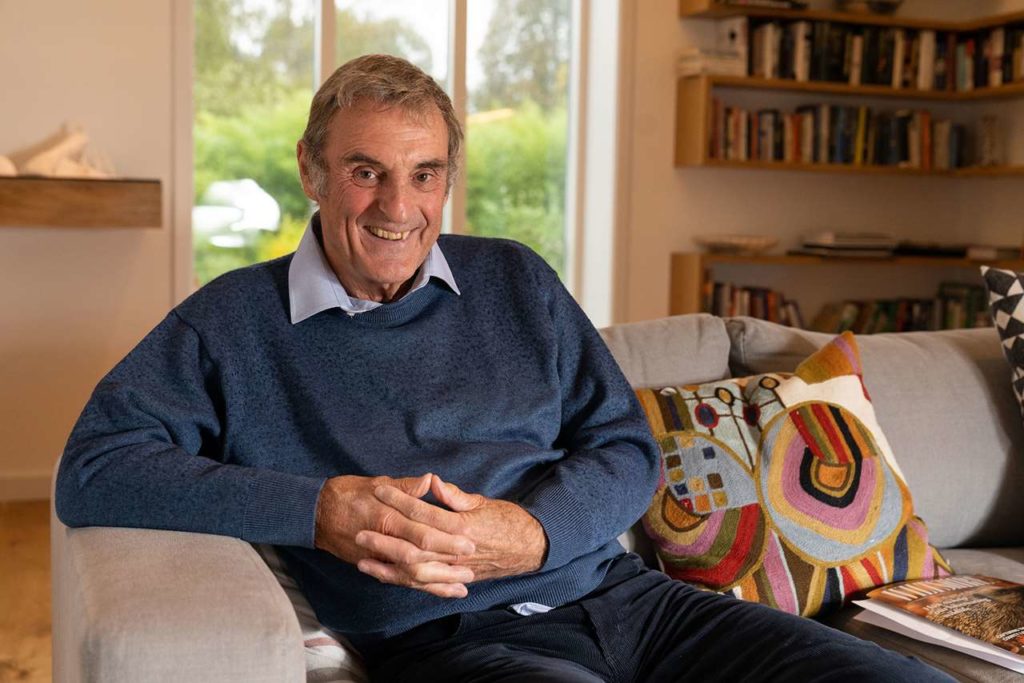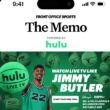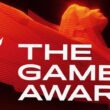Mark Allen is founder-owner of the UK-based Mark Allen Group (MAG). The 37-year-old, £60m-revenue publishing and events company has made almost 30 acquisitions during the past 20 years at a total cost of £60m. Some of the smarter deals have had a payback of less than 12 months. MAG now has 100 publications, 250 events, and 15 exhibitions, including Farmers Weekly, Community Care, Ground Handling International, The Engineer, The British Journal of Nursing, and Gramophone. About 20% of revenue is ex UK. Allen’s entrepreneurial career began after 10 years as an editor and publisher at Reed Business Information, then the world’s largest B2B magazines and exhibitions group. He was a social science graduate from Durham University in England’s north east, and last year published his first novel, “Life Term”.

What was your start in media?
My first job was as a reporter for the Sheffield Star on a three-year apprenticeship. I joined straight from university in the late 1960s. Graduates were relatively rare then in journalism and, in hindsight, it embarrasses me to realise how hopeless I was.
I was a dreamy, idealistic, chaotic individual, child of the 1960s, interested in writing (mainly poetry) but completely ill-prepared for the tough world of northern daily journalism, where ‘poncey’ independent school kids from the south were despised, perhaps rightly so.
I had gone to a progressive school and then to a good university, but my spelling was atrocious and my liberal education had persuaded me that this did not matter. How bloody arrogant! Furthermore, at school and university, I was incapable of delivering my essays on time. I was constantly late with all my work. I thought journalism was all about creative writing: didn’t everyone talk about ‘stories’? In fact, I was entering the one profession where spelling, accuracy and keeping to deadlines were absolutely essential.
Sigmund Freud would have had fun understanding my motives for wanting to become a journalist. It was a toss-up between journalism and social work, but the former seemed more exciting. Deep down, I think I was testing myself by getting into areas of considerable discomfort.
On the first day in my first job, I wrote my very short piece, which took me all day (I could not type either!). I submitted it, only to be confronted by the editor who hated graduates with pathological zeal, bawling at me that I was a ‘f…… graduate’ who had spelled ‘accommodation’ with one ‘m’. Fight or flight? I almost left on the spot. But I was determined to stick it out. I started to get to grips with the reality of the job and did quite well.
The main lesson I learned at the Sheffield Star was how to spell, how to write in straightforward clear sentences and, crucially, how to be disciplined in my work and life. In all my years since, I don’t think I have ever missed a work deadline of any description. I am now meticulous about doing everything on time. I am grateful to journalism for many skills that I have acquired but, above all, for helping to bring order and discipline into my dysfunctional life.
How was Reed Business Information in its heyday?
I will always look back on the 10 years I spent at Reed with particular fondness. What became Reed Business Information gave me an outstanding break, appointing me at age 29, as the launch editor of the new Community Care magazine. I had gone from the Sheffield Star to the northern edition of the Daily Express, a national daily then selling 4m copies. But I could not see where my career was going.
I am still not sure why Reed gave me the huge responsibility of appointing my own team and launching a weekly social work magazine: I knew only newspapers and nothing about magazines and I had had zero management training. A man called Vic Williams, my managing director, saw something in me and I was determined not to let him down. The success of Community Care gave me huge confidence. But, without Vic’s endorsement, I might now be stacking shelves in a supermarket!
In those days, Reed was a somewhat uninspiring outfit. Its parent company was battling with some financial troubles through its paper mills in Canada and it had not successfully launched any major publishing brands for some time. It was losing out badly in talent to upstarts like EMAP, Haymarket and Morgan Grampian. There was nothing flashy about Reed: it was ‘the civil service of publishing’. But what the company did have were superb systems and protocols and some good people. It was – though not always appreciated – a very fair and transparent company.
I have since acquired three brands from my former employer: Community Care, The Optician, and Farmers Weekly. They are doing very well, due largely to their ‘upbringing’ at Reed.
How did you become an entrepreneur?
I never planned to be an entrepreneur (I was quite happy being a hired hand) but became one out of anger. Money has never been a prime motivation for me.
I had been talked into becoming a publisher at Reed. Then, I was approached by Thomson which wanted me to create a medical division for them. I was very reluctant and kept turning down the job, partly because – somewhat to my surprise – I was really enjoying my job as a publisher of Nursing Mirror, Community Care and Surveyor magazines. But also because of Thomson’s poor reputation. I was uncertain whether they had the necessary commitment to invest in a new medical division in an enormously competitive field.
Finally, after being lunched at London’s swanky Ritz Hotel, I relented. Thomson had plans in place to launch a magazine called The Physician. I pleaded with them not to do so, because everything about the concept seemed wrong, but they insisted. It was launched on the very day I started with Thomson and was an unmitigated disaster. It had an alcoholic editor (a doctor!) whom I never met. I again pressed the company to close the magazine immediately. But the management had too much at stake, so the publication I never wanted became a millstone, dripping cash by the bucketful.
My worst fears were realised 18 months later. Despite all the assurances I had been given, Thomson quickly lost interest in medical publishing and wanted out. What a contrast to Reed! My former employer might have been a little dull as a company, but it was very well managed. By contrast, Thomson was a shambles with no coherent strategy. I was offered another job but I was not going to stay. I felt let down and frustrated. Impulsively, I offered to buy two of the magazines I had been managing and, eventually, Thomson, agreed. One of them, British Journal of Hospital Medicine (BJHM), is still a successful part of the Mark Allen Group.
How did you fund the startup?
Thomson felt guilty about the way I had been treated so they generously allowed me to acquire the two magazines at a reasonable price, which I paid from my redundancy settlement.
I had planned to go into business with another colleague who was raising some money. But, at the very last second, he let me down and decided against taking the risk. I went to my bank to borrow £10k, but they refused. I was left high and dry. With no access to cash, I had to think creatively if I was to survive. I took one of the bravest decisions of my life (actually, it was not all that brave because there did not seem to be any other option!). Based purely on gut feel and with no prior marketing, I converted BJHM from a free 35,000 controlled circulation magazine to subscription-only, priced at £32.50 a sub.
It proved a brilliant success as we generated 7,200 subscribers which brought in £234k upfront revenue. The story got even better because we managed to persuade a pharmaceutical company to sponsor 4,500 consultant doctor subs at a knockdown rate but which also guaranteed us regular advertising.
How quickly did you become profitable?
The first year, 1985-6, went surprisingly well, but disaster was just round the corner.
Thinking I could now walk on water (!), I agreed to buy a business-cum-science magazine called Link-Up on a five-year earn-out. There was only one problem: a venerable association called the British Association for the Advancement of Science (BA) retained an editorial and financial interest in the magazine.
I discussed my plans and the BA was enormously encouraging. There was, however, a bigger problem I had not expected. The two key members of staff – the editor and advertisement director, whom I did not know – had hatched a plan effectively to steal the magazine from me – with the support of the BA.
The upshot was that I was served with an injunction for, allegedly, being in breach of a publishing agreement. Against legal advice, I defended myself in the High Court and won the action with damages. That was the good news. The bad news was that the magazine was effectively killed by the adverse publicity – and I had lost around £525k.
By the end of the 1980s, I began making small but erratic profits, but one reasonable year was followed by a very poor one. I was still suffering from the Link-Up magazine debacle, the most painful period of my professional career. The only upside was that BJHM had become something of a cash cow and I did not need to borrow any money. However, I was living hand-to-mouth, teetering on the edge of bankruptcy. I still do not know quite how I managed to survive.
What was your breakthrough?
Despite being close to the edge, I found a way of launching new niche nursing journals at very low cost. I would promote these magazines for subscriptions up to a year in advance with an imaginary front cover, the up-front revenue from subscriptions more than paying for the costs of marketing. At the time of launch, we would invariably have 1,500 to 2,000 paid subscribers without a word having been written.
At the same time, I had acquired a dental magazine, The Probe, for £5,000, on the say-so of a friend who was going to join me but then took fright and bailed out. But the magazine started doing well and – less than five years later – I put it up for sale in order to repair my battered balance sheet. It was a risk because – other than The Probe – only BJHM was working well in my business. To my surprise (and relief), I received an offer for £2.2m for The Probe. I gleefully accepted.
The year was 1993 and this was the start of a new beginning for my company, although the next year – without the profits of The Probe – was tough. But we were debt-free and, slowly but surely, our niche journals (which we had continued to launch) were starting to come good.
Since then, the company has gone from strength to strength, mainly as a result of acquisitions in many different areas in publishing and events. Over the past decade or so, we have completed more than 20 acquisitions and, in nearly every case, they have been extremely successful. The average pay-back on these deals has been three years.
What’s so special about the Mark Allen Group?
We are a family company with distinct values and we really do try to do the right thing for our people. We are open, honest and transparent with our financial information. We try our hardest to be fair. We encourage participation. We provide opportunities to our people based on their talent and drive and not on their age, qualifications or seniority. Against modern trends, we are involved in publishing and events in 12 different sectors. This diverse portfolio has helped us to emerge from the pandemic in excellent shape, far better than most media companies.
For 2021-22, we will have another record performance: EBITDA of £12.3m on turnover of almost £60m.
You are involved both in B2B and B2C publishing. Is that a deliberate strategy?
We are more interested in B2B than B2C. But our music magazines are B2C and include Gramophone, which is one of the most iconic brands in publishing and is a flagship for the group.
What is your primary role?
I am executive chairman of the group. I chair all the board meetings of our various companies as well as a pandemic-induced monthly ‘COBRA’ gathering of senior executives. I am primarily responsible for acquisitions. I offer support wherever necessary to the CEO, Ben Allen, and his senior team which runs the company on a day-to-day basis. I take a personal interest in our graduate and apprenticeship schemes, as well as the newly-formed Mark Allen Foundation, which supports two charities. It has taken me a while to adjust to being chairman. I still work in the company every day but perhaps not with the same intensity as I did when I was CEO. I do sometimes miss the heat of the daily battles and the ability to make rapid decisions.
What’s your vision for the company?
In five years, Mark Allen Group will be bigger and stronger, with a turnover of not less than £85m. Print revenues will still be robust but we will have transitioned even more to digital. We will have consolidated our events portfolio after the effects of the pandemic have subsided. We will have kicked-off a series of online digital/data driven products in healthcare. We will also be a more diverse company than we are today with a more equal gender balance.
What are the most important lessons you have learned?
Firstly, after the Link-Up debacle, I don’t generally do anything which smacks of a joint venture involving other parties, but I’m very comfortable taking my own calculated risks: What’s the worst thing that can happen? Nothing can be as bad as the nightmare I endured with Link-Up and I will never make the same mistake again. Secondly, it is important to trust and empower your team and allow talent to rise to the surface.
Which company do you most admire?
In addition to Reed – to which I still feel loyalty for the opportunities they gave me – I have always respected Haymarket. It is a bigger family-based company than ours which also tries to do the right thing. All their brands have excellent editorial and production values. They employ some first-rate people. We have acquired six brands from them and, generally, the people we have inherited from them have been highly professional and committed. I also greatly admire the way Haymarket has come back from the dead during the last few years. They sold-off their offices, cleared their borrowings and have started to perform very well again, particularly in the United States.



